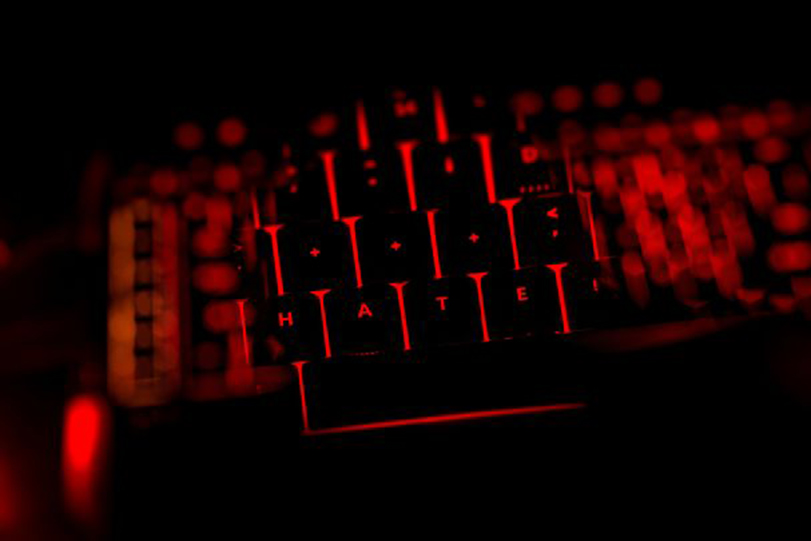
Seminar: The spread of hate speech
- 25 June 2019
- 6:00pm – 8:00pm
- Daiwa Foundation Japan House, 13 - 14 Cornwall Terrace, London NW1 4QP. Nearest tube: Baker Street
- http://dajf.org.uk/event/the-spread-of-hate-speech
- 020 7486 4348
- events@dajf.org.uk
- Tweet
The Christchurch mosque shootings by a white supremacist in March 2019, which were the worst mass shooting in New Zealand’s modern history and were streamed online, are an example of the prevalence of hate crimes. This incident is not isolated, but there has been a shift globally, leading the UN Secretary-General, António Guterres, to announce that the UN will develop a strategy and global plan of action against hate speech and hate crimes, stating that “hate speech is spreading like wildfire”. Neither the UK nor Japan are immune to the spread of hate speech. In the UK, there has been a recent rise in hate crimes, with the number recorded having doubled since 2012-13, including a spike after the EU Referendum. In Japan, anti-Korean hate speech comes from not only right-wing movements, but also from prominent public figures. To compound the issue, the internet has made it increasingly easy for messages of hate to be posted online and across social media channels, whilst internet giants are coming under increasing pressure to regulate and remove hate speech. Combatting hate speech is therefore a pressing but complex challenge, which encompasses debates surrounding free speech and questions of regulation and legislation.
This seminar will look at the patterns of hate speech in the UK and Japan, exploring the form that hate speech takes, the challenges in eradicating it and the limitations of current measures. Dr Naoto Higuchi of Tokushima University will explore, through the lens of post-colonialism, why Korean migrants are a primary target for hate speech in Japan. Dr Chris Allen of the University of Leicester will then look at hate speech in the context of the UK, discussing how Brexit and social media may be effecting the spread of hate speech.
About the contributors
Dr Naoto Higuchi
Dr Naoto Higuchi is an Associate Professor of Sociology at Tokushima University. He studied on the graduate course in the Sociology Department, Hitotsubashi University, until 1999. His research focuses on immigration, social movements and political sociology. He is the author of Japan’s Ultra-Right (2016), and co-author of Invisible residents: Japanese Brazilians vis-à-vis the state, the market and the immigrant network (2005); What is immigration policy? (2019); and Who are the online right-wingers? (2019).
Dr Chris Allen
Dr Chris Allen is Associate Professor in the Centre for Hate Studies at the University of Leicester. For almost two decades he has been at the forefront of research into Islamophobia and religiously-motivated hate, far-right extremism in the UK and associated counter-extremism policies and approaches. He is widely published both in the UK and elsewhere around the world, regularly writing comment pieces for non-specialist outlets and appearing in both broadcast and print media. As well as having held a number of independent advisory roles within government and its institutions he is a Senior Fellow at the Centre for the Analysis of the Radical Right, a Fellow of the Higher Education Academy, Royal Society of Arts and the US Government’s International Visiting Leadership Program and an alumnus of the John Adams Society.
Professor Harris Beider
Professor Harris Beider (Chair) is Head of the School of Social Sciences and Professor of Communities and Public Policy at Birmingham City University. Previously he had been Director of Research Development and Professor of Community Cohesion at The Centre for Trust, Peace and Social Relations, Coventry University, and Senior Fellow at the Centre for Urban and Regional Studies at the University of Birmingham, working on housing, race and community engagement. In 2014 and 2016, he was awarded a Visiting Professorship in the School of International and Public Affairs at Columbia University, New York, teaching on graduate courses on race and public policy, urban studies and global perspectives on migration. Harris was nominated for the Columbia University Presidential Teaching Prize in 2017. His work has been featured in The Nation, The Guardian, The Huffington Post, on the BBC, as well as with international broadcasters.
